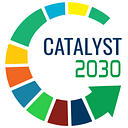Social Impact Model: Leveraging Sports Technology as a Global Language for Social Good
By: Ernest H.S. Chan, Social Tech, HealthTech & EduTech Professional
Introduction
In an increasingly interconnected world, sports technology has emerged as a universal language that transcends barriers, fostering inclusivity and engagement. The social impact model outlines the strategic implementation of sports technology, through the innovative use of Augmented Reality (AR) and Virtual Reality (VR) games, to serve children with special needs and the elderly in Hong Kong. With this belief, AESIR was started as a pioneering AR/VR game social venture that aims to reduce healthcare expenditures, enhance training effectiveness, and achieve social impact.
The Power of Augmented and Virtual Reality
The social venture leverages the power of augmented reality (AR) and virtual reality (VR) in sports to drive positive outcomes across multiple dimensions. By integrating these innovative technologies, our objective is to improve physical health, reduce healthcare costs, and foster community and connections for children with special needs and the elderly. The following key areas highlight the transformative impact of AR and VR on healthcare expenditure, training effectiveness, and social well-being.
- Healthcare Expenditure Reduction: By promoting active lifestyles through engaging in AR and VR sports games, we reduce the incidence of chronic diseases among both children and the elderly, thereby lowering healthcare costs.
- Training Effectiveness: Utilising AR and VR technology allows for personalised training programs that cater to the unique needs of each individual, enhancing their physical capabilities and overall health outcomes.
- Social Impact Achievement: By fostering a sense of community and belonging through shared sports experiences, leads to improvement in the quality of life for both target groups, promoting inclusivity and social cohesion.
Target Population for Sports Technology Integration
The target population that AESIR focuses on is two distinct groups: children with special needs and the elderly, each facing unique challenges that can be addressed through technology-driven interventions.
Children with special needs often face challenges with physical activity and social interaction. Over 70% of children with special needs are obese due to self-control issues [1]. Sports technology can provide tailored experiences that promote physical health, cognitive development, and social skills. As the elderly face mobility issues and social isolation, engaging them in interactive sports technology can improve their physical health, mental well-being, and social connections [2,3].
Sports Tech Intervention
Implementation Strategy
To guide the development, outreach, and application of AR and VR sports technology within these communities, AESIR has carefully curated its implementation strategy.
- Development of AR/VR Games: AESIR designs and develops interactive sports games that are accessible and engaging for children with special needs and the elderly. These games will focus on physical activity, cognitive challenges, and social interaction.
- Community Engagement: Partner with local schools, healthcare facilities, and community organisations such as other Catalyst2030 Hong Kong Chapter members such as Elite Fencing to promote the use of these technologies. Workshops and demonstrations will be organised to showcase the benefits of AR and VR in sports.
- Training Programs: Establish training programs for caregivers, educators, and healthcare professionals to effectively implement these technologies in their respective environments, ensuring that they can maximise the benefits for the target populations.
- Monitoring and Evaluation: Implement a robust monitoring and evaluation framework to assess the impact of the AR/VR games on healthcare expenditures, training effectiveness, and social outcomes. This will involve collecting data on health metrics, user engagement, and social interactions.
Outcomes
Glady’s Yuen, Occupational therapist, stated, “with the advancement of technology, we can increase their safety as well as maximise participation in everyday life.”
- With the AR/VR Gamings providing appropriate physical education curricula and simple assessments for children with autism and ADHD and their parents, it has provided 150 children with ADHD and autism on their Executive function skills training and over 90% showing they have made significant improvement across their 9 Executive functioning skills in a 3 month trial from a joint research collaboration with the Education University of Hong Kong.
- The research team is now working with the School of Nursing, the Hong Kong Polytechnic University in its sports game data target to serve over 840 Hong Kong seniors to help them explore their sports interests and to expand their social network with sports to combat social isolation.
Conclusion
By harnessing the power of sports technology, this social impact model aims to create a transformative experience for children with special needs and the elderly in Hong Kong. With the collaboration of Catalyst 2030 Hong Kong Chapter in partnership with AESIR, we can pave the way for a healthier, more inclusive society that values the contributions of all its members.
Author:
Peer-reviewed & Edited by:
Peer-reviewed & Edited by:
Sources:
- Van Pelt, Jennifer. Children With Disabilities and Obesity. Vol. 23, №5, P. 22. May 2021 Issue. Retrieved from: https://www.todaysdietitian.com/newarchives/0521p22.shtml
- Research results on the physical and mental health and exercise habits of elderly people living alone and living alone in Hong Kong. 12 Sept, 2023. Retrieved from: https://bit.ly/4fjJAgh
- The Hong Kong Council of Social Services. https://www.hkcss.org.hk/
Explore the work
Websites: AESIR
Socials: LinkedIn
Videos: AESIR Introduction on Senior Well-being, AR/VR with Elderly Individuals, People with Disabilities Engage with AR/VR
Cite this Article APA
Chan, E. (28 November, 2024). Social Impact Model: Leveraging Sports Technology as a Global Language for Social Good. Retrieved (month date year) from (https://medium.com/@catalyst2030/social-impact-model-leveraging-sports-technology-as-a-global-language-for-social-good-a4a6f7b28db9)
